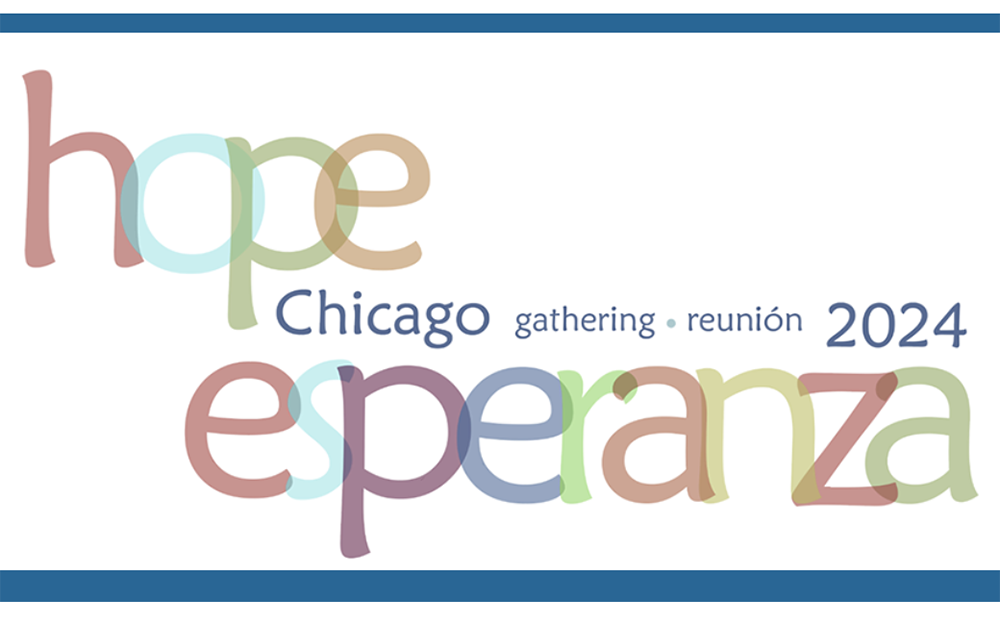
Abierto solo a religiosas menores de 65 años, el Encuentro Hope-Esperanza se celebró del 25 al 28 de enero en Chicago, Estados Unidos. (Imagen: captura de pantalla del GSR/TheLC.global)
More than 150 younger sisters will gather in Chicago this weekend to contemplate the future of religious life.
Open only to women religious under the age of 65, the Hope-Esperanza Gathering runs from Jan. 25-28; more than 100 other sisters will join the gathering virtually.
Organizers say the conversation of what religious life should and will look like is vital for younger sisters because they are the ones who will be living it.
Sr. Linda Buck, a Sister of St. Joseph of Orange and executive director of the Leadership Collaborative, which is hosting the event, said many younger sisters say they did not join a congregation thinking they would be responsible for overseeing its completion. The gathering is also funded by the Conrad N. Hilton Foundation, a major supporter of Global Sisters Report, and the GHR Foundation, which has provided funding for GSR in the Classroom.
"But for so many, that's the reality," said Buck, who joined her community 20 years ago. "I knew things were changing, but you don't know what you don't know. I knew we didn't have 50 people joining at a time like before, but my first year as a candidate there were like 10 funerals. I was so overwhelmed, I stopped going."
The numbers have only fallen since then: In 2000, there were nearly 80,000 sisters in the United States, according to statistics kept by the Center for Applied Research in the Apostolate at Georgetown University. In 2021, that number had dropped to 36,321.
"We know the reality, but living the reality is the challenge," Buck said. "And how do we live it together, instead of being siloed in our own congregations or charisms?"
There are also leadership dynamics that can make it even more challenging. Some younger sisters complain that they're being taken out of the missions they joined for, only to be put in leadership, because there is no one else able to fill the role. Others, despite decades of professional experience, would like to be in leadership but are rebuffed by older sisters who see them as too young.
"You're entering when you're in your 30s, but you're seen as if you're 18," Buck said. "What I hear even more is that the structures in how we do leadership is not so attractive to newer, younger members."
Advertisement
Women religious are often known for their collaborative leadership — an anomaly in a hierarchical church — but Buck said it could be even more collaborative and discerning.
"I think Pope Francis is showing us a different way through the synodal process by who was sitting around the table — notably circular tables," she said. "And more importantly, how do we not try to control the future? How do we instead let the Spirit move us where we need to go?"
At the conference's opening, Buck plans to speak about sisters' fear of losing their identity as their reality changes, and the challenge of keeping what's important while letting other things go.
"Our identity, our charisms, who we are — often we're trying to preserve all that because that's all we've known," she said. "But what is the essence of all that, and how do we keep that essence? Like our vows — how are those lived out?"
It's not about diminishment, Buck said, but rightsizing what congregations are doing.
"It's the smallness of leaven that multiplies into abundance," she said. "If we have this network of sisters, that energy, that abundance can really make a difference."
Sisters registered for the gathering represent 108 congregations from 26 different countries.





